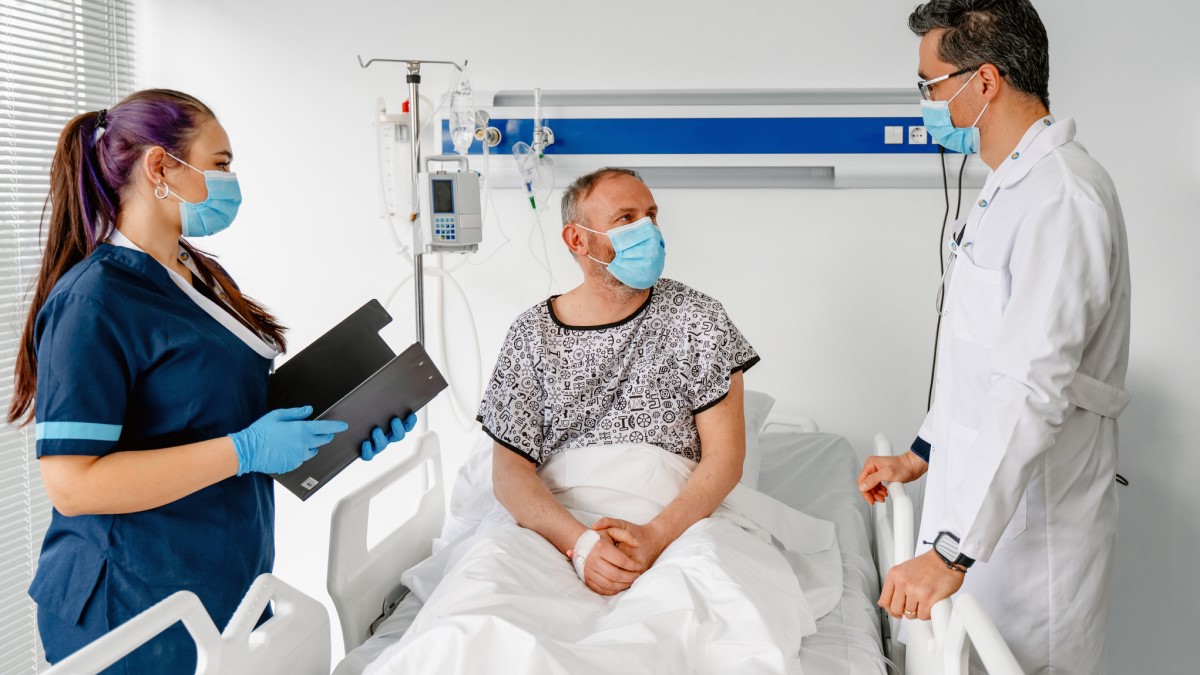Key points
- Lung cancer can be treated in several ways.
- Treatment depends on the type of lung cancer and how far it has spread.
Types of lung cancer

The two main types of lung cancer are small cell lung cancer and non-small cell lung cancer. These categories refer to what the cancer cells look like under a microscope. Non-small cell lung cancer is more common than small cell lung cancer.
If you have lung cancer (especially non-small cell lung cancer), your doctor may run tests to find out if you have a change in your genes (genetic mutation). The results of these tests help your doctor know which treatments will work best for you.
Staging
If lung cancer is diagnosed, other tests are done to find out how far it has spread through the lungs, lymph nodes, and the rest of the body. This process is called staging. The type and stage of lung cancer tell doctors what kind of treatment you need. For more information, visit Stages of Non-Small Cell Lung Cancer and Stages of Small Cell Lung Cancer.
Screening can help find lung cancer at an early stage, when treatment may work better.
Treatment options
Lung cancer is treated in several ways, depending on the type of lung cancer and how far it has spread. People with non-small cell lung cancer can be treated with surgery, chemotherapy, radiation therapy, targeted therapy, or a combination of these treatments. People with small cell lung cancer are usually treated with radiation therapy and chemotherapy.
- Surgery: An operation in which doctors cut out the cancer.
- Chemotherapy: Use of special medicines to shrink or kill the cancer. The drugs can be pills you take or medicines given in your veins, or sometimes both.
- Radiation therapy: Use of high-energy rays (similar to x-rays) to kill the cancer.
- Targeted therapy: Use of drugs to block the growth and spread of cancer cells. The drugs can be pills you take or medicines given in your veins. You will get tests to see if targeted therapy is right for your cancer type before this treatment is used.
For more information, visit the National Cancer Institute's Lung Cancer page. This site can also help you find health care services.
Which treatment is right for me?
Talk to your cancer doctor about the treatment options available for your type and stage of cancer. Your doctor can explain the risks and benefits of each treatment and the side effects. Side effects are how your body reacts to drugs or other treatments.
Sometimes people get an opinion from more than one cancer doctor. This is called a "second opinion." Getting a second opinion may help you choose the treatment that is right for you.
Clinical trials
Clinical trials use new treatment options to see if they are safe and effective. If you have cancer, you may want to take part. Visit the sites listed below for more information.
- NIH Clinical Research Trials and You (National Institutes of Health)
- Learn About Clinical Trials (National Cancer Institute)
- Search for Clinical Trials (National Cancer Institute)
- ClinicalTrials.gov (National Institutes of Health)
Complementary and alternative medicine
Complementary and alternative medicine are medicines and health practices that are not standard cancer treatments. Complementary medicine is used in addition to standard treatments. Alternative medicine is used instead of standard treatments. Acupuncture and supplements like vitamins and herbs are some examples.
Many kinds of complementary and alternative medicine have not been tested scientifically and may not be safe. Talk to your doctor about the risks and benefits before you start any kind of complementary or alternative medicine.
